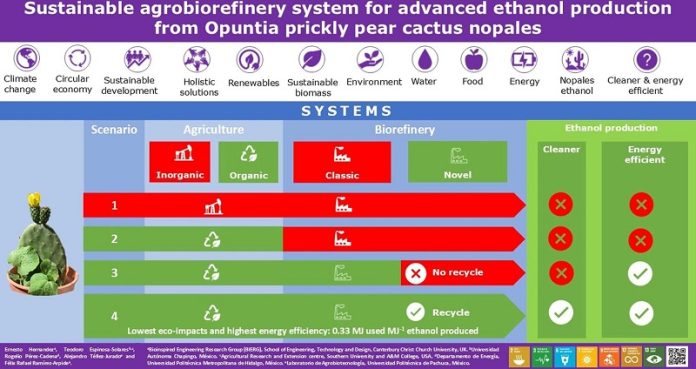
Scientists have discovered a more eco-friendly way to produce energy by using plants that thrive in dry, harsh environments like deserts.
These drought-tolerant plants, also called arid plants, show promise for creating cleaner and more efficient biofuels, which are renewable energy sources made from biological materials such as plants and algae.
A global team of researchers from Canterbury Christ Church University in the U.K., Southern University in the U.S., and Universidad Autónoma Chapingo in Mexico worked together on this groundbreaking study.
Why desert plants?
Desert plants are tough and resourceful, needing very little water, land, or care to grow. Researchers believe these resilient plants can serve as sustainable feedstocks for biofuel production, providing a greener alternative to traditional crops like corn or wheat.
Unlike those traditional crops, desert plants don’t compete with food resources and don’t require much water or energy to grow. This makes them a better choice for the environment, as they reduce pollution and the need for intensive farming practices.
The study introduces a new “agrobiorefinery” system that combines farming and biorefinery techniques. This approach is far more efficient than traditional methods, which rely on crops like algae, corn, and rice straw. These older systems use a lot of energy, water, and machinery and can cause pollution.
Ernesto Hernandez, a Senior Lecturer in Chemical Engineering and the project lead, explained the benefits: “Our agrobiorefinery system is cleaner and uses just a third of the energy needed by traditional methods. This could solve big problems like food shortages and land use conflicts caused by biofuel production.”
More than just biofuel
This innovative system doesn’t just provide clean energy—it also supports the circular economy and helps combat climate change. By integrating agriculture with energy production, it offers a way to use resources more efficiently while reducing dependence on fossil fuels.
The results are impressive. The system produces higher bioethanol yields than current feedstocks like corn and algae. It also reduces carbon dioxide in the atmosphere, helping to fight global warming.
Dr. Rafael Ramírez-Arpide of Universidad Autónoma Chapingo said, “This research shows how to make biofuel production more sustainable by finding ways to reduce environmental impacts.”
This breakthrough is a major step toward cleaner energy without harming food supplies or natural resources—a win for both people and the planet.



